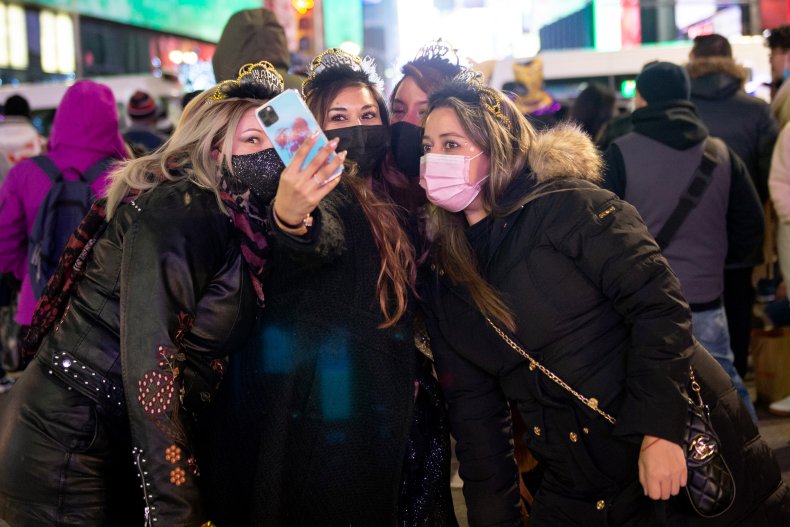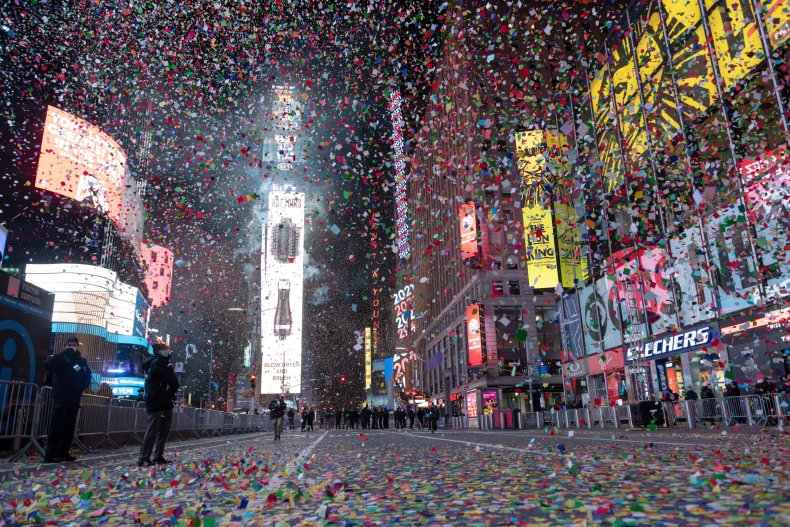An Arizona doctor said Tuesday that people should not attend large New Year's Eve parties even if they wear masks and are fully vaccinated, as hospitals in the state are struggling to handle COVID-19 cases.
Because the Omicron variant is highly transmissible, Dr. Marjorie Bessel advised the vaccinated to not gather with a large group of people on December 31.
"And you certainly should not be going to any type of gathering or party if you're feeling ill," Bessel, the chief clinical officer at Phoenix-based Banner Health, said during a press conference. "We know this is very difficult," she said. "We have been in this pandemic for two years."
Arizona is experiencing a high number of hospitalizations, admissions to intensive care units and people needing ventilators across the state, according to the state Department of Health Services.
COVID-19 patients are taking up 40 percent of Banner Health hospitals' ICU beds, and nearly 90 percent of those patients are unvaccinated, Bessel said during the press conference. Some of Banner's hospitals are operating above 100 percent capacity,
The surge in hospitalizations isn't expected to peak until mid-January, Bessel said.
She recommended that people stay as safe as possible by wearing masks indoors, getting vaccinated if they haven't already, getting a booster shot if eligible, and, if they feel sick, getting tested and staying home.

"Right now we must do everything possible to mitigate omicron," Bessel said, referring to the fast-spreading virus variant.
Bessel told journalists during a news briefing that crowded Banner hospitals continue to postpone some non-emergency surgeries and that their clinical workers are exhausted, with many having to forgo their own holiday gatherings to care for patients.
"We remain very busy," Bessel said. "We continue to see a lot of patients come into our emergency departments. Our ICUs are very full at this time."
The state's coronavirus dashboard reported Tuesday that COVID-19-related hospitalizations inched upward early this week, with 2,344 virus patients occupying inpatient beds statewide as of Monday.
The dashboard also reported 1,976 additional confirmed COVID-19 cases, a fraction of the over 7,600 reported Monday following reporting delays over the holiday weekend.
Arizona on Tuesday also reported 162 virus deaths as the state's pandemic totals increased to 1,364,669 cases and 24,144 deaths.
According to Johns Hopkins University data, Arizona's seven-day rolling averages of daily new cases and daily deaths both rose over the past two weeks. The rolling average of daily new cases rose to 3,387.3 on Sunday, while the rolling average of deaths rose to 77.3.
The Associated Press contributed to this report.


Post a Comment